- Home
- Dan Simmons
Prayers to Broken Stones
Prayers to Broken Stones Read online
A Game of Life and Death
“You begin, Willi, dear,” said Nina. “You go first.” She was leaning forward, and her blue eyes seemed very bright. “I’ve been wondering since I saw the Strangler interviewed on Sixty Minutes. He was yours, Willi?”
“Ja, ja, he was mine. He was the gardener of a neighbor of mine. I left him alive so that the police could question him. He will hang himself in his cell next month. But this is more interesting. Look at this.” Willi slid across several glossy black-and-white photographs. The NBC executive had murdered the five members of his family and drowned a visiting soap-opera actress in his pool. He had then stabbed himself repeatedly and written 50 SHARE in blood on the wall of the bathhouse.
“I think it should receive points for irony,” Willi said. “The girl had been scheduled to drown on the program. It was already in the script.”
“Did you have to repeat the contact?”
Willi frowned at me. “Ja, ja, I saw him twice more.”
“Points for irony,” said Nina. “But you lose points for repeated contact. What else do you have?”
He had his usual assortment. Pathetic skid-row murders. Two domestic slayings. A highway collision that turned into a fatal shooting. “I was in the crowd,” said Willi. “I made contact. He had a gun in the glove compartment.”
When he was finished, the three of us went through the ritual of assigning points. Willi went from being sullen to expansive to sullen again. His eyes were small, red embers in a bloody mask.
“Forty-one,” said Nina at last and showed the calculator. “I count forty-one points. It’s your turn, Melanie.”
Books by Dan Simmons
CARRION COMFORT
CHILDREN OF THE NIGHT
THE FALL OF HYPERION
HYPERION
PHASES OF GRAVITY
PRAYERS TO BROKEN STONES
SONG OF KALI
SUMMER OF NIGHT
SUMMER SKETCHES
This book is a work of fiction. Names, characters, places and incidents are either the product of the author’s imagination, or are used fictitiously. Any resemblance to actual events or
locales, or persons, living or dead, is entirely coincidental.
This edition contains the complete text
of the original hardcover edition.
NOT ONE WORD HAS BEEN OMITTED.
PRAYERS TO BROKEN STONES
A Bantam Spectra Book / published by arrangement with the author
PRINTING HISTORY
Dark Harvest edition published 1990
Bantam edition / May 1992
SPECTRA and the portrayal of a boxed “s” are trademarks of Bantam Books, a division of Bantam
Doubleday Dell Publishing Group, Inc.
Grateful acknowledgment is made for permission to reprint the following: “The River Styx Runs Upstream” Copyright © Dan Simmons; first appeared in Rod Serling’s The Twilight Zone Magazine April, 1982. “Eyes I Dare Not Meet in Dreams” Copyright © Dan Simmons; first appeared in OMNI Magazine September, 1982. “Vanni Fucci is Alive and Well and Living in Hell” Copyright © Dan Simmons; first appeared in Night Visions 5 from Dark Harvest 1988. “Vexed to Nightmare by a Rocking Cradle” Copyright © Dan Simmons; first appeared in Mile High Futures November, 1985. “Remembering Siri” Copyright © Dan Simmons; first appeared in Isaac Asimov’s Science Fiction Magazine December, 1983. “Metastasis” Copyright © Dan Simmons; first appeared in Night Visions 5 from Dark Harvest 1988. “The Offering”(teleplay) Copyright © Laurel EFX 1989; first appeared on the syndicated television show Monsters 1990. “?-Ticket to ‘Namland” Copyright © Dan Simmons; first appeared in OMNI Magazine November, 1987. “Iverson’s Pits” Copyright © Dan Simmons; first appeared in Night Visions 5 from Dark Harvest 1988. “Shave and a Haircut, Two Bites” Copyright © Dan Simmons; first appeared in Masques III, edited by J.N. Williamson 1989. “The Death of the Centaur” Copyright © Dan Simmons 1990. “Two Minutes Forty-Five Seconds” Copyright © Dan Simmons; first appeared in OMNI Magazine April, 1988. “Carrion Comfort” Copyright © Dan Simmons; first appeared in OMNI Magazine Sept.-Oct. 1983.
All rights reserved.
Copyright © 1990 by Dan Simmons.
All story introductions copyright © 1990 by Dan Simmons.
Introduction by Harlan Ellison copyright © 1990 by The Kilimanjaro Corporation.
No part of this book may be reproduced or transmitted in any form or by any means, electronic or mechanical, including photocopying, recording, or by any information storage and retrieval system, without permission in writing from the publisher.
For information address: Bantam Books.
eISBN: 978-0-307-78187-1
Bantam Books are published by Bantam Books, a division of Bantam Doubleday Dell Publishing Group, Inc. Its trademark, consisting of the words “Bantam Books” and the portrayal of a rooster, is Registered in U.S. Patent and Trademark Office and in other countries. Marca Registrada. Bantam Books, 666 Fifth Avenue, New York, New York 10103.
v3.1
This is for Karen, with love.
TABLE OF CONTENTS
Cover
Other Books by This Author
Title Page
Copyright
Dedication
Introduction
“The River Styx Runs Upstream”
“Eyes I Dare Not Meet in Dreams”
“Vanni Fucci Is Alive and Well and Living in Hell”
“Vexed to Nightmare by a Rocking Cradle”
“Remembering Siri”
“Metastasis”
“The Offering”
“E-Ticket to ’Namland”
“Iverson’s Pits”
“Shave and a Haircut, Two Bites”
“The Death of the Centaur”
“Two Minutes Forty-Five Seconds”
“Carrion Comfort”
Introduction
Harlan Ellison
Then the time comes when it is clear nothing new or important will be done; and one draws out the ledger and begins to itemize what there is, of value, that can be offered to posterity. And here a good deed, and there an act of courage; during this year one worthy story was told, during that decade involvement in an important social movement. If there are babies, that is logged in. If there are books, they are noted. Loving friends. Wives and husbands. Kindness to small animals. A hill bearing your name. But the laurels you counted on, they’ve turned to dust.
Cultural amnesia. Yesterday is buried. Who ever heard of Crispus Attucks or Edward Yashinsky, Bettie Page or Wendell Willkie, Preacher Roe or Memphis Minnie Douglas? Seven people in all the world remember them. Just you and I, and five others.
The tusks that clashed in mighty brawls
Of mastodons, are billiard balls.
The sword of Charlemagne the Just
Is ferric oxide, known as rust.
The grizzly bear whose potent hug
Was feared by all, is now a rug.
Great Caesar’s bust is on the shelf,
And I don’t feel so well myself.
ON THE VANITY OF EARTHLY GREATNESS
by Arthur Guiterman
It is certain no one will remember, when I am gone, that I was a man who first published Lenny Bruce; that I saved two hundred acres of watershed land from developers; that I once singlehandedly caught a car thief and on another occasion deduced the identity of a cat burglar and was instrumental in his capture; that I corresponded with the mysterious B. Traven and published his first book of short stories; that it was I who manipulated Mystery Writers of America into paying authors and editors who contributed to their anthologies.
These things are important to me; but when I go … that they ever happened will pass
from the world. The awards won, the escapades mythologized, the love spent so unwisely … it all grows clouded in the mirror, and the mirror is covered with a white sheet, and the ancient furniture is stored away, and one night when it gets cold the old furniture is broken up for kindling. Then who is to say what was important when this one lived, or that one made his mark?
In the ocean of time it is merest chance that saves the handful from oblivion.
It is my ever growing sense that of all the chances thrown to me, lifelines in the ocean of time, that my best chunk of flotsam is that I discovered Dan Simmons.
Oh, yes, that’s the correct word. I discovered him.
There is a wonderful record album that Stan Freberg put together, titled The United States of America (Volume One: The Early Years). And one of the shticks on that album has Columbus meeting some Indians on the beach, and he tells them, “I’ve found you!” To which they reply, “We weren’t lost. We knew we were here.” So Columbus amends his declaration and says, “Well, at least I discovered you here on the beach,” and they kind of agree that it’s pretty dopey, but what the hell.
In much the same way I discovered Dan Simmons. All pink and cranky, there on the beach.
It is a story worth telling, for there is an important lesson to be learned from this bit of incidental literary history. And if I set it down, posterity may take note.
The catalyst was Ed Bryant, now a close friend of Dan’s, but unknown to him at the time. Ed and I had been chums for a long stretch; I suppose that’s why I allowed him to enlist me as one of the visiting authors to the Colorado Mountain College “Writers’ Conference in the Rockies.” It was the summer of 1981, it was hot and moist, and I dreaded having to workshop the stories of a group of aspiring authors who seemed more dilettante than the talented people I’d worked with at various Clarion conferences.
The physical set-up of the workshop sessions was hardly conducive to establishing rapport with the students: it was a stuffy classroom, with tablet-top chairs; the uncomfortable, hard-seat kind you suffered with in the third grade. Arranged in rows. There was a step-up platform where the “instructor” sat, facing the assemblage. From on high, one supposes, words of auctorial wisdom were intended to shower down on the groundlings.
Compared to the efficient and reassuring circle of sofas and comfy chairs at a Clarion Workshop, where everyone has a clear view of everyone else’s face, where the group leader has no greater position of authority than each student … this was a nightmare. And the group was too large to service everyone.
When I had arrived, the evening before, I’d been given a stack of manuscripts that needed to be workshopped, but no advisement was forthcoming as to the order in which the stories would be discussed. So I’d read at random, not much impressed by the quality of the material, hoping I’d hit the ones that would be up first. Naturally, I spent the night reading exactly the ones for later in the week.
So when I got to the foyer of the building next morning, with everyone mingling and doing bagels and doughnuts and coffee, I checked the list. Imagine my pleasure at discovering I hadn’t even glanced at the first three or four scheduled for discussion.
Hurriedly, I grabbed copies of the unread stories from the stacks, found myself a far corner of the library, and began to catch up. The first three were undistinguished, but competent. The fourth was just plain awful. I didn’t get to the fifth story … the call for beginning the session was delivered by a staff liaison.
I entered the classroom, saw the rows filled, saw the empty chair on the low platform, waiting for me as if I were some stump revivalist minister come to preach The Word. My heart sank, and I knew this was going to be an extremely difficult morning.
Understand: I do not believe “anyone can write.” That is to say, anyone can slap together words in some coherent sequence if s/he had done even a modicum of reading, and has at least a bare grasp of how to use language. Which is talent enough for writing letters, or doctoral theses, or amusing oneself with “creative endeavors.” But to be a writer—not an “author” like such ongoing tragedies as Judith Krantz, Eric Segal, V.C. Andrews, Sidney Sheldon, and hordes of others I leave to you to name—one must hear the music. I cannot explicate it better than that. One need only hear the music. The syntax may be spavined, the spelling dyslectic, the subject matter dyspeptic. But you can tell there has been a writer at work. It fills the page, that music, however halting and rife with improper choices. And only amateurs or the counterproductively soft-hearted think it should be otherwise.
When I am hired to ramrod a workshop, I take it as my bond to be absolutely honest about the work. I may personally feel compassion for someone struggling toward the dream of being a writer, who doesn’t hear the music, but if I were to take the easy way out, merely to avoid “hurting someone’s feelings”—not the least of which are my own, because nobody likes to be thought of as an insensitive monster—I would be betraying my craft, as well as my employers. As well as the best interests of the students themselves. Lying to someone who, in my opinion (which can certainly be wrong, even as yours), doesn’t have the stuff, is mendacious in the extreme. It is cowardly, not merely dishonest. Flannery O’Connor once said, “Everywhere I go I’m asked if I think the university stifles writers. My opinion is that they don’t stifle enough of them. There’s many a bestseller that could have been prevented by a good teacher.”
Similarly, I take it as my chore to discourage as many “aspiring authors” as I possibly can.
Because you cannot discourage a real writer. I’ve said it a hundred times in print. Break a real writer’s hands, and s/he will tap out a story with feet or nose.
That was my attitude when I took my seat before the wary eyes of young and old men, young and old women, all of them assembled in hopes of having some guru tell them they had a chance. (I have virtually given up doing workshops. I cannot bear the pain I cause in the name of the holy task that is writing well. Let someone else do it.)
One of the writers whose manuscript was early on the list was elsewhere, in a poetry section, I believe. So we talked about the second story, and we went around the room asking for the opinions of the other workshoppers, before I spoke to the work at hand. The comments weren’t particularly scintillant. The usual “I liked it a lot” or “I’d give it an 86, it has a good beat, and you can dance to it” but nothing very deep, and nothing very deep needed: it was an okay piece of writing, but no more than that.
Same for the third story. But then we came to the fourth; a truly amateurish hodge-podge of incomprehensible clichés presented without grace, virtually every word misspelled, and festooned with all of the worst bad habits indulged in by those who (in Stanley Ellin’s words) “mistake a love of reading for a talent for writing.” I knew this was going to be an unlovely interlude.
Comments around the room were sparse. Most of the people there had at least enough ability to recognize plain awful writing when they encountered it. So they lay back, and as I asked for more opinions, and didn’t get them, a sense of genuine uneasiness filled the room. The tension that precedes the high wire aerialists attempting for the first time the death-defying simultaneous three-person triple somersault.
I asked for the gentleman who had written this story to identify himself. If I was to do it, at least let me be brave enough to look the man in the eye.
An elderly man, tall and thin, looking weathered but very kind, raised his hand. I cannot remember his name.
And I told him. I told him that insofar as I was equipped, by years as an editor and critic and workshop attendee or instructor, by a lifetime of reading and struggling to overcome the flaws in my own writing, by everything I knew or believed or suspected about good writing, that he seemed—in my view—to possess no talent for writing. Not a small, but serviceable, talent. No talent at all. I was not insulting or disputatious, but I was sincerely firm in giving it to him straight.
As I spoke, the room grew tenebrous. Some of the attendees slumped
far down in their chairs, as if trying to vanish from my sight. Others turned away, using one hand as blinder. On the faces of some of them I saw a look that must parallel that worn by soldiers in combat when they see, with guilt and human relief, that the bullet has struck the next man in the trench.
There was no way of stopping without explaining, page by page, the utter tone-deafness and ineptitude of what he had done.
Finally, I stopped. Then I asked him if this was his first story, or if he had ever submitted anything for publication.
He was a nice man, a very decent man, and he answered me without rancor. He said, “I’ve written sixty-four novels. I’ve never been published.” My heart broke for him. But what was I to do? I said, “Perhaps you might better spend your time at a craft, or an art, for which you have a greater aptitude.”
He shook his head. No one else but us in that room. Just that fine old man and I, joined at the hip forever. “I appreciate what you’ve said,” he told me, with a strong voice. “I think you’re being honest and saying what you believe. But it won’t deter me. I want to write, and I’ll keep at it. But I thank you.” I think about that man whose name I cannot recall almost every week. Whenever I sit down to work, I think of him.
But it was clear we had to have a break right then.
We couldn’t continue without a pause. It had to settle to its own level of acceptance in each of them. So I told them we would reassemble in fifteen minutes. The room emptied in an instant; and no one came out of the group to speak to me, or to ask a question. I feared I had been destructive, no matter how deeply I believed it was my obligation to be candid.
It was not in me to join the students in the corridor. I knew they hated the thought of returning, probably for more of the same; and wishing they had chosen one of the other visiting instructors’ section. I couldn’t blame them. It had been a horrorshow.
So I picked up the fifth story, now at the top of the stack. No matter how awful I felt, it was my job to get it read before the fifteen minute break was up. But the room, and my outlook, was dolorous. Pity the poor sonofabitch who had written that fifth manuscript. I began to read.

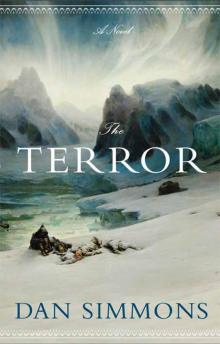 The Terror
The Terror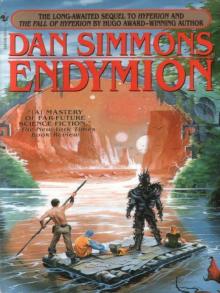 Endymion
Endymion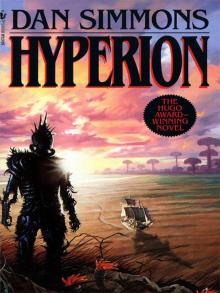 Hyperion
Hyperion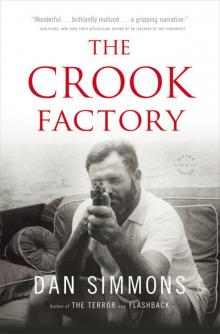 The Crook Factory
The Crook Factory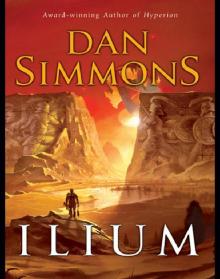 Ilium
Ilium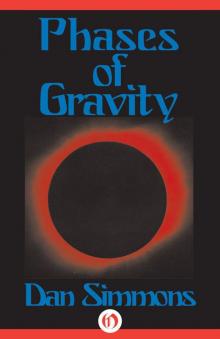 Phases of Gravity
Phases of Gravity Hardcase
Hardcase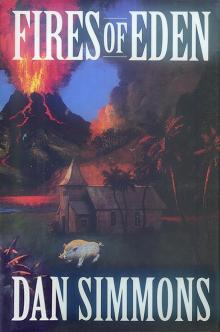 Fires of Eden
Fires of Eden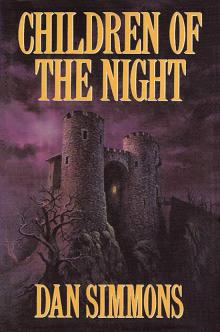 Children of the Night
Children of the Night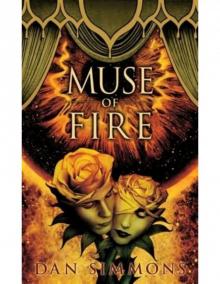 Muse of Fire
Muse of Fire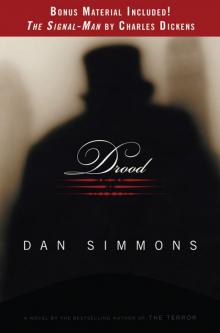 Drood
Drood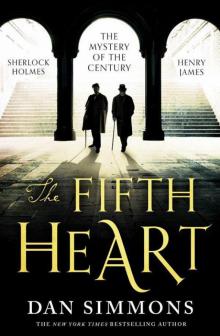 The Fifth Heart
The Fifth Heart Carrion Comfort
Carrion Comfort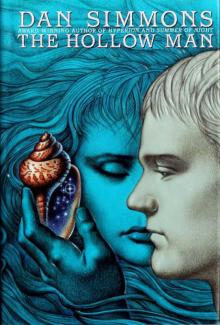 The Hollow Man
The Hollow Man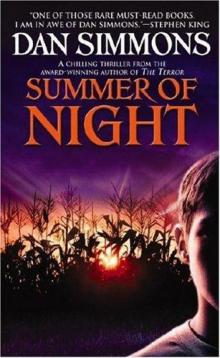 Summer of Night
Summer of Night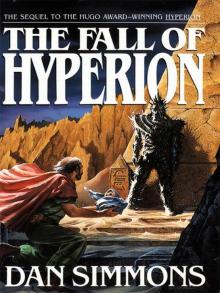 The Fall of Hyperion
The Fall of Hyperion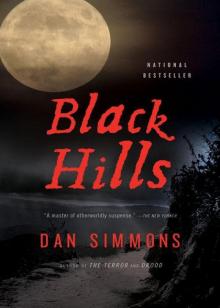 Black Hills
Black Hills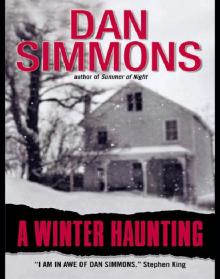 A Winter Haunting
A Winter Haunting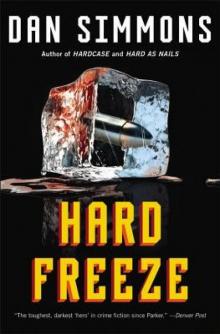 Hard Freeze
Hard Freeze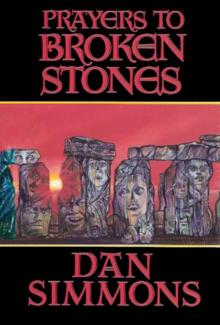 Prayers to Broken Stones
Prayers to Broken Stones Hard as Nails
Hard as Nails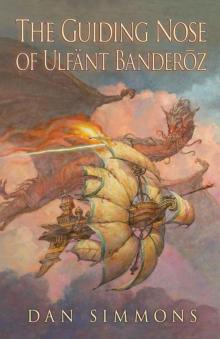 The Guiding Nose of Ulfant Banderoz
The Guiding Nose of Ulfant Banderoz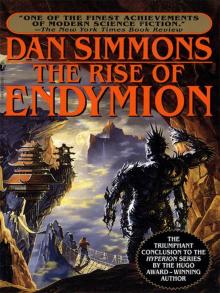 The Rise of Endymion
The Rise of Endymion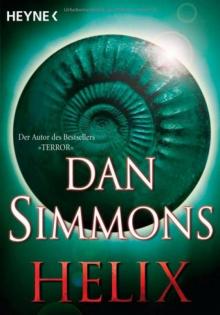 Orphans of the Helix
Orphans of the Helix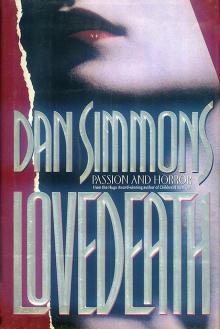 Lovedeath
Lovedeath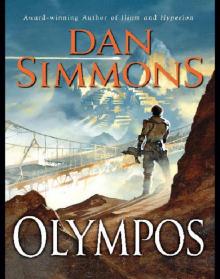 Olympos
Olympos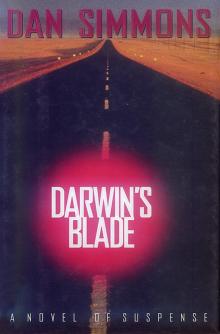 Darwin's Blade
Darwin's Blade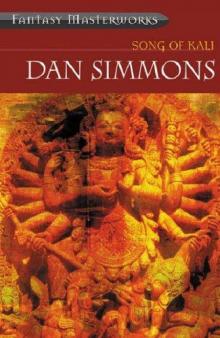 Song of Kali
Song of Kali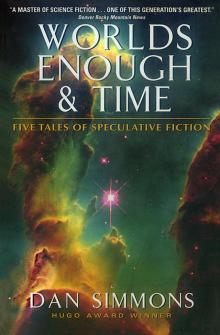 Worlds Enough & Time: Five Tales of Speculative Fiction
Worlds Enough & Time: Five Tales of Speculative Fiction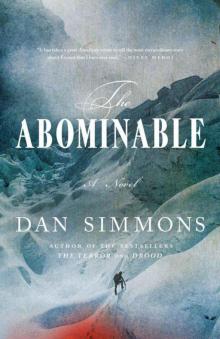 The Abominable
The Abominable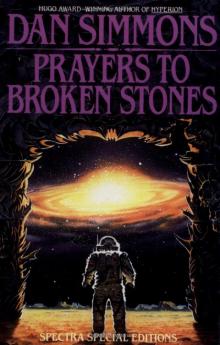 The Death of the Centaur
The Death of the Centaur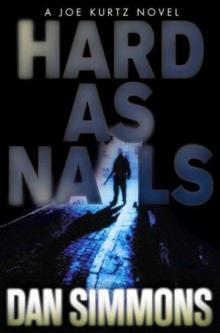 Hard as Nails jk-3
Hard as Nails jk-3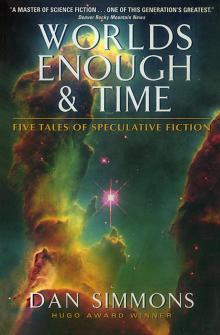 Worlds Enough & Time
Worlds Enough & Time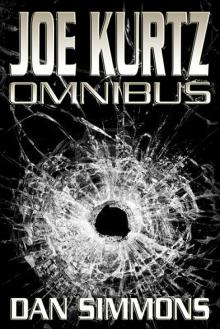 Joe Kurtz Omnibus
Joe Kurtz Omnibus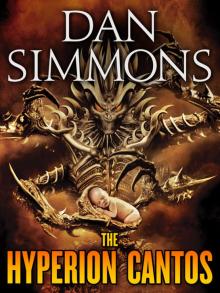 The Hyperion Cantos 4-Book Bundle
The Hyperion Cantos 4-Book Bundle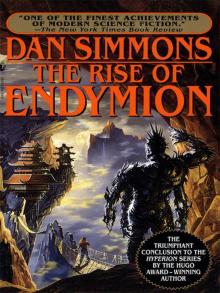 Rise of Endymion
Rise of Endymion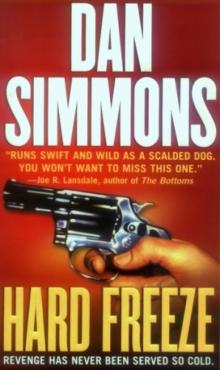 Hard Freeze jk-2
Hard Freeze jk-2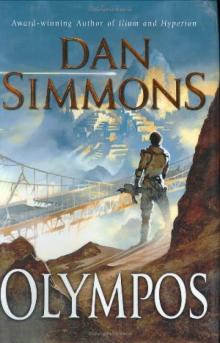 Olympos t-2
Olympos t-2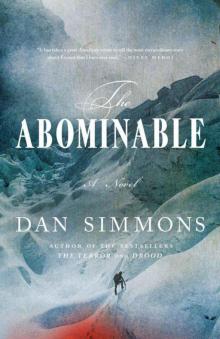 The Abominable: A Novel
The Abominable: A Novel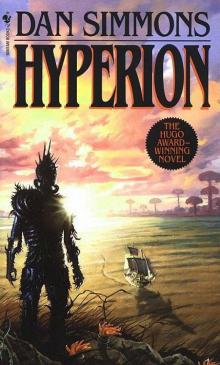 Hyperion h-1
Hyperion h-1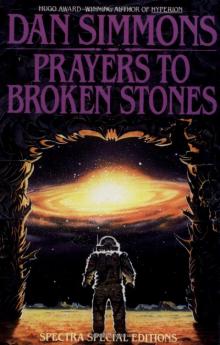 Remembering Siri
Remembering Siri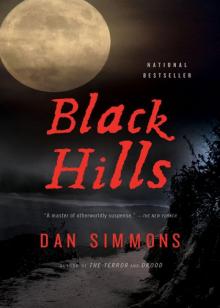 Black Hills: A Novel
Black Hills: A Novel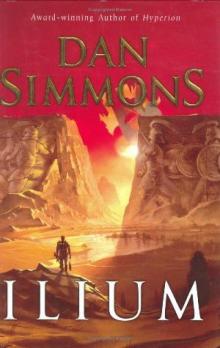 Ilium t-1
Ilium t-1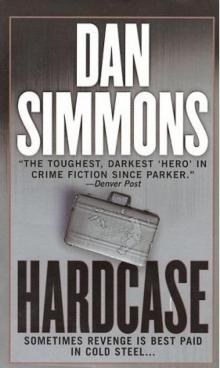 Hardcase jk-1
Hardcase jk-1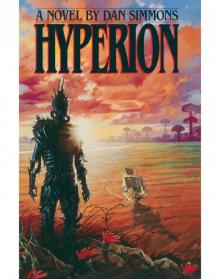 Hyperion 01 - Hyperion
Hyperion 01 - Hyperion